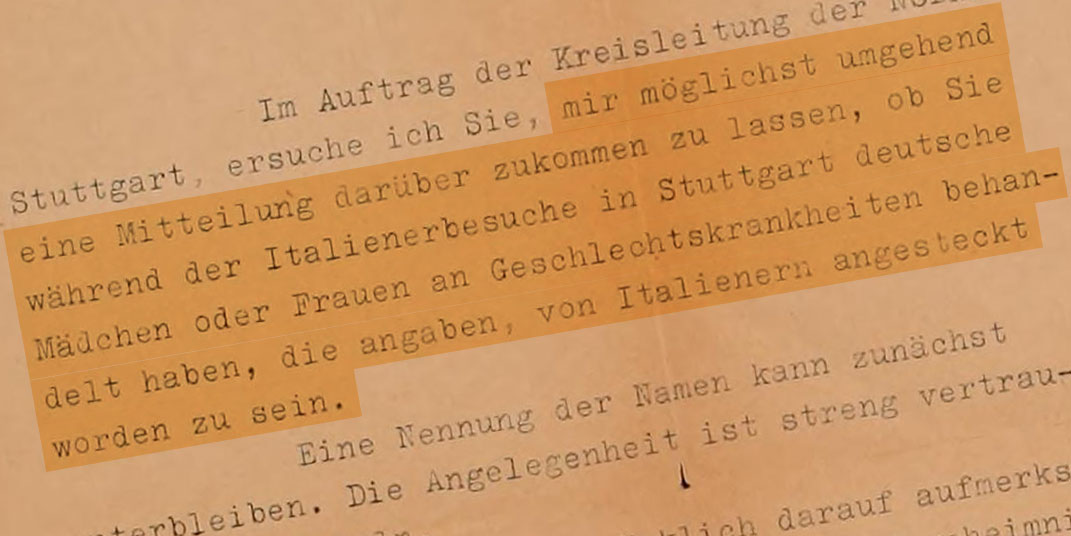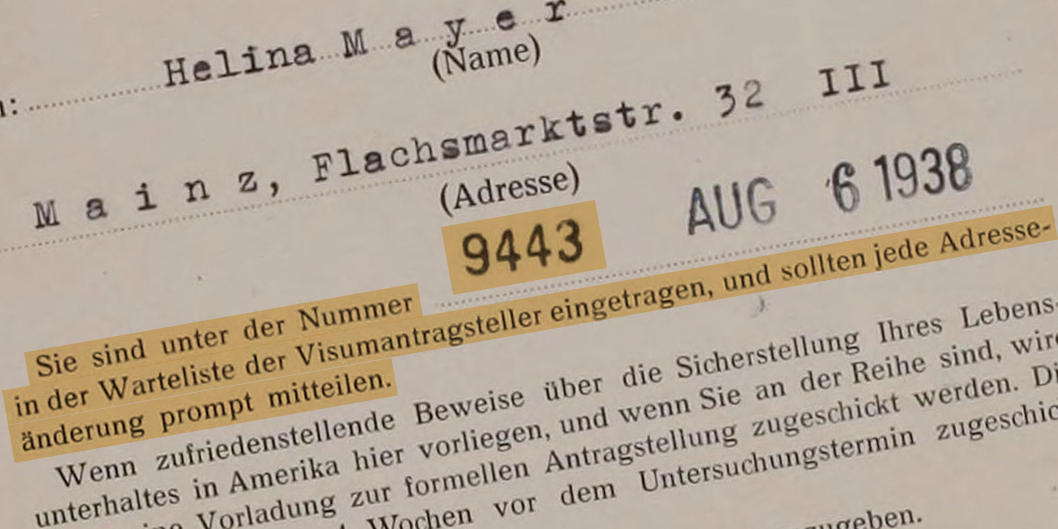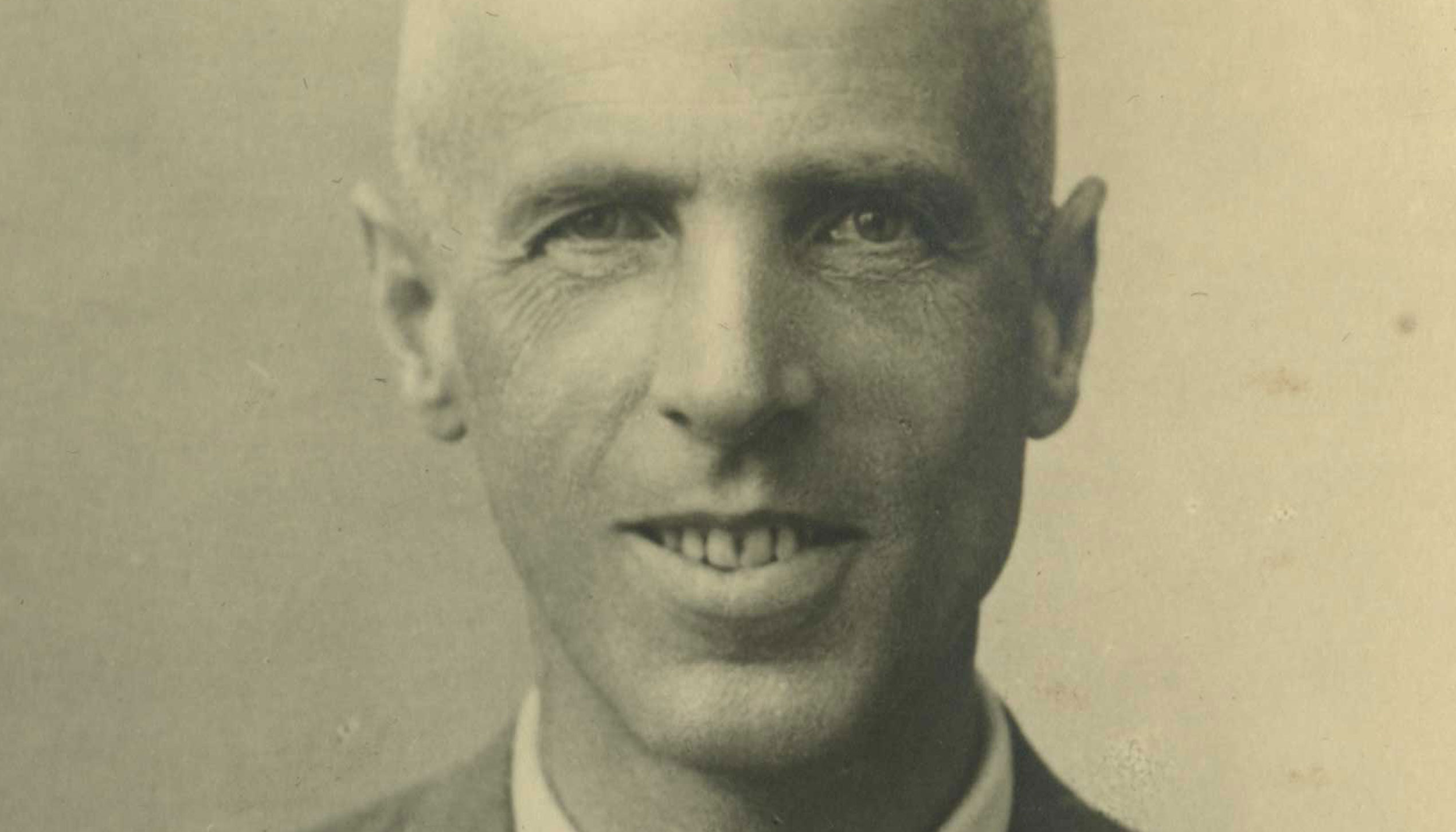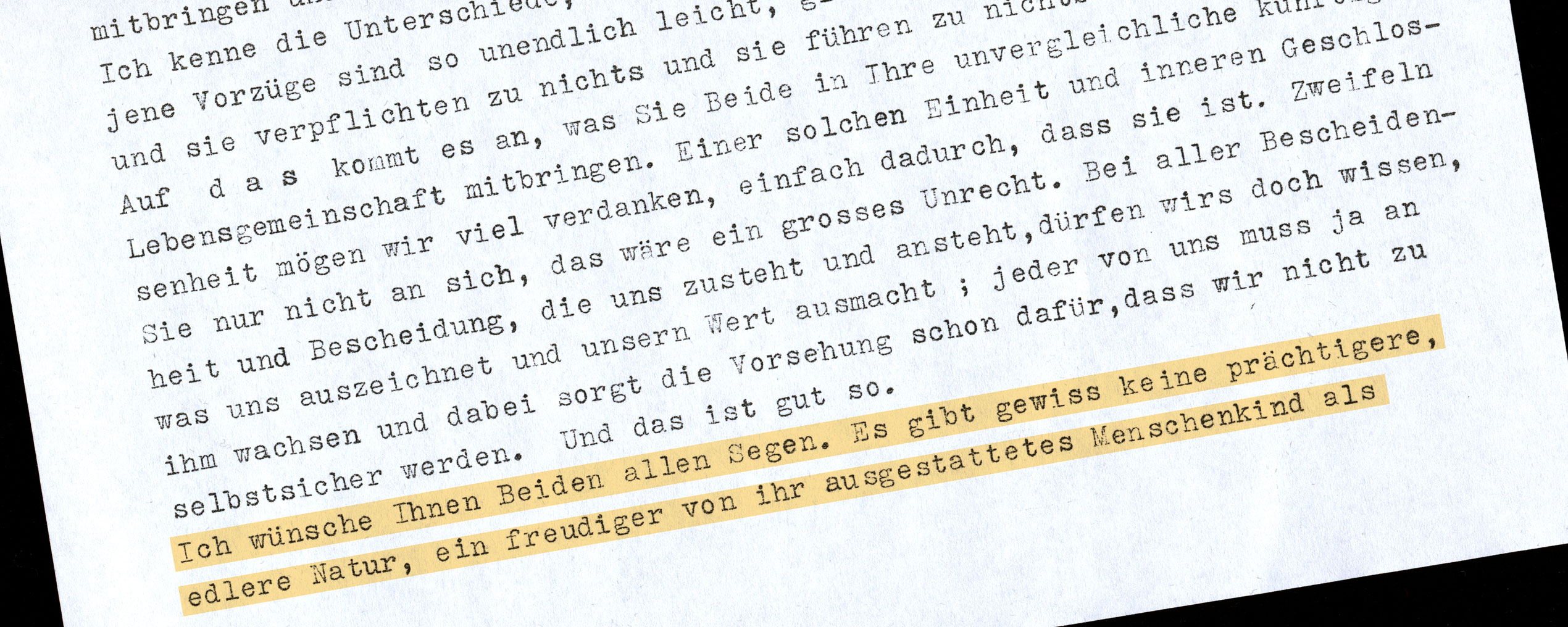When the private becomes political
A Jewish doctor is expected to violate his confidentiality

“...to let me know as soon as possible, as to whether during the Italians' visits to Stuttgart, you treated for sexually-transmitted diseases German girls or women who indicated that they were infected by Italians.”
Stuttgart
Dr. Ernst Schaumberger was a doctor specializing in skin and sexually-transmitted diseases, a virtually apolitical occupation. However, National-Socialist ideology concerning race and morals interpreted sexual relations as a matter of political interest. Therefore, Dr. Schaumberger’s area of work became political. The confidential request, which he received from the agency of public health in Stuttgart on September 20th, is noteworthy in many ways. He was asked to report whether he had treated any girls or women who were infected with sexually-transmitted diseases due to sexual relations with Italians. So-called “racial hygiene” in National Socialism didn’t shy away from violating medical confidentiality. When Dr. Schaumberger received this letter, his days as a practicing doctor were numbered. He’d already been identified as a “Jewish doctor” in July, and an amendment to the Nazi Reich Citizenship Law decreed that, on the 30th of September, 1938, the licenses of Jewish doctors would expire. Nonetheless, he was still expected to cooperate with the Nazis.
SOURCE
Institution:
Leo Baeck Institute – New York | Berlin 
Collection:
Irene Shomberg Collection, AR 6256 
Original:
Box 1, folder 1










































